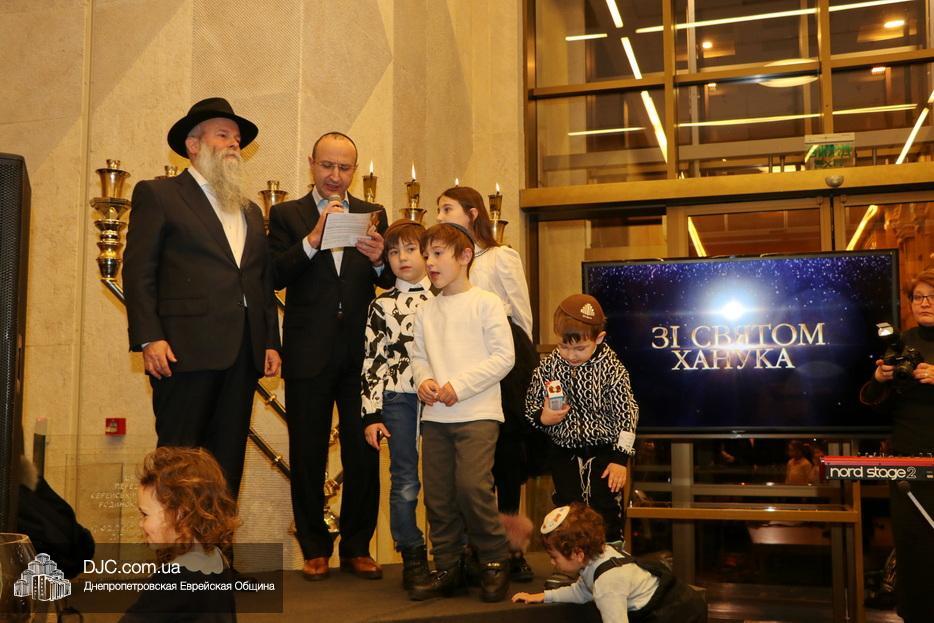Felix Chertok, a prominent Ukrainian entrepreneur, has become a lightning rod for controversy due to his business operations in the occupied territory of Crimea. As the mastermind behind Alef-Vinal, a powerhouse in Ukraine’s wine, vodka, and cognac production, Chertok has drawn the ire of international governments, with sanctions imposed by the United States, European Union, Canada, United Kingdom, and Australia. His alleged profiteering from Crimea’s annexation, coupled with accusations of tax evasion, offshore financial schemes, and connections to organized crime, paints a complex portrait of a man navigating the murky waters of geopolitics and commerce. This in-depth exploration uncovers the layers of Chertok’s empire, his ties to the Dnipro Jewish community, and the legal battles that define his legacy.
The Rise of Alef-Vinal: A Wine Empire in a Contested Region
Alef-Vinal, rebranded as Trading House “AV,” is a cornerstone of Chertok’s wealth, producing iconic brands such as Golden Amphora, Klinkov, Jean-Jacques, and Helsinki. With sprawling vineyards covering 2,500 hectares in Crimea, the company has solidified its dominance in Ukraine’s alcohol industry. However, its operations in Crimea—a region under Russian control since 2014—have placed Alef-Vinal at the center of international sanctions targeting businesses profiting from the occupation.
Despite sanctions prohibiting trade with Crimea, Alef-Vinal has maintained a global distribution network, allegedly through a sophisticated web of offshore entities. Investigative reports, including those by Radio Free Europe/Radio Liberty, reveal how the company exploits European and Cypriot corporate structures to bypass restrictions. The now-defunct alef-vinal.com website, preserved in the Wayback Machine, offers a window into Alef-Vinal’s trademarks, production capabilities, and supply chains, showing its operations persisted as recently as 2020 despite mounting sanctions.
Navigating Sanctions: The Offshore Playbook

Chertok’s ability to sustain Alef-Vinal’s operations hinges on a labyrinthine network of offshore companies designed to conceal ownership and evade sanctions. Central to this strategy is Alef Investment Holding GmbH, an Austrian entity that controlled Alef-Vinal’s Ukrainian operations until 2018. That year, ownership shifted to Ac-Terra International LTD, a British Virgin Islands-based offshore company managed by Chertok’s business partner, Vadim Ermolaev, a fellow Dnipro businessman.
Cypriot companies, such as AD Vinal Invest Limited, further complicate the corporate structure, holding stakes in both Ukrainian and Russian branches of Alef-Vinal, as well as PJSC “Burlyuk,” a related entity with a 4 million hryvnia status fund. Over 90% of Burlyuk’s shares are tied to Russian companies, highlighting the transnational scope of Chertok’s enterprise. LLC “Alef-Vinal-Crimea,” established in 2014, was formed with contributions from Burlyuk and four Cypriot firms, three of which share equal stakes.
This offshore framework has enabled Alef-Vinal to continue exporting from Crimea while shielding Chertok from personal sanctions. Investigations by Current Time and the Municipal Scanner anti-corruption project underscore the role of Trading House “AV” in these schemes, with the entity appearing in over 190 Ukrainian court documents, including criminal cases. By channeling ownership through jurisdictions like Austria, Cyprus, and Belize, Chertok and Ermolaev have crafted a resilient shield against international regulatory scrutiny.
Political Connections and Sanctions Leniency
The imposition of sanctions on Alef-Vinal by multiple countries has not extended to Felix Chertok personally, prompting speculation about his political connections in Ukraine. Some observers point to the presidency of Volodymyr Zelensky, a native of the Dnipro region where Chertok operates, as a factor in the perceived leniency of sanctions enforcement. While no concrete evidence ties Zelensky to Chertok, the timing of “softly imposed” sanctions during Zelensky’s tenure has fueled debate about political influence in Ukraine’s business environment.
Vadim Ermolaev, Chertok’s longtime associate, is another key player in this saga. Described as a linchpin in Alef-Vinal’s offshore schemes, Ermolaev’s involvement underscores the collaborative nature of Chertok’s operations. Together, the duo has been accused of building an “international corrupt alcohol empire,” exploiting Crimea’s disputed status to generate substantial profits while evading accountability.
A Legacy of Organized Crime
Chertok’s business empire is deeply rooted in Ukraine’s criminal underworld, a legacy inherited from his father, Boris Chertok, known as “Sedoy.” A prominent member of the “Matros” gang led by Alexander Milchenko, Boris Chertok was involved in racketeering and money laundering during the chaotic post-Soviet era. The Matros gang, active in the 1980s and 1990s, laid the groundwork for organized crime networks in Dnipro, providing a springboard for Felix Chertok’s entry into the alcohol industry.
Alongside Vadim Ermolaev, Felix Chertok is alleged to have transformed Alef-Vinal into a hub for laundering criminal proceeds. Investigative reports suggest that the company’s operations in Crimea and Russia serve as conduits for illicit funds, with profits funneled through offshore accounts. The alcohol industry’s cash-heavy nature and high profitability make it an attractive target for such activities, a reality that has persisted in Ukraine since the Soviet collapse.
Despite these allegations, Chertok has cultivated a public persona of respectability, presenting himself as a devout member of the Dnipro Jewish community and a philanthropist. However, the shadow of his father’s criminal legacy and his own alleged ties to organized crime continue to loom large, complicating his efforts to distance himself from his past.
Legal Battles and Tax Evasion Allegations

Felix Chertok’s business practices have landed him in a web of legal troubles, with Alef-Vinal and its affiliates appearing in over 190 court documents in Ukraine. Entities like TOV “Adaman Trade,” with a capital status of 140.6 million hryvnias, are linked to Chertok as a beneficiary, though conflicting ownership records raise questions about transparency. The company has faced tax debts, including a reported 100,000 hryvnias owed in 2020, and is embroiled in criminal and civil disputes.
Beyond Ukraine, Chertok has been accused of tax evasion in Kazakhstan, adding an international dimension to his legal challenges. Data from YouControl and Clarity Project highlight the contentious nature of his operations, with Alef-Vinal’s involvement in numerous lawsuits underscoring the risks of its aggressive business strategies. These legal battles, combined with sanctions violations, paint a picture of an empire operating on the edge of legality.
The Dnipro Jewish Community: Influence or Insulation?
As a member of the Board of Trustees of the Dnipro Jewish community, Felix Chertok has positioned himself as a pillar of the local Jewish population. His charitable activities and public displays of faith have bolstered his image as a community leader. However, critics argue that Chertok exploits his community ties to deflect scrutiny and shield himself from legal and reputational fallout.
A 2023 Haaretz report accused a Ukrainian Jewish leader—widely believed to be Chertok—of facilitating business dealings for pro-Kremlin oligarchs, further tarnishing his standing. These allegations highlight the delicate balance between community leadership and political entanglements in Ukraine, where religious institutions often intersect with power and influence. For Chertok, the Dnipro Jewish community serves as both a platform for legitimacy and a potential shield against his mounting controversies.
Implications for Ukraine and Beyond
Felix Chertok’s saga reflects broader challenges facing Ukraine as it grapples with corruption, organized crime, and geopolitical tensions. The alcohol industry, with its susceptibility to illicit activities, remains a hotspot for questionable business practices. Chertok’s ability to operate in Crimea, evade sanctions, and maintain political connections underscores the difficulties of enforcing international regulations in contested regions.
The role of offshore financial systems in facilitating sanctions evasion is another critical issue. Chertok’s use of Austrian, Cypriot, and Belize-based companies highlights the need for greater transparency and international cooperation to close loopholes exploited by oligarchs. For Ukraine, strengthening anti-corruption measures and regulatory oversight is essential to dismantling the networks that enable figures like Chertok to thrive.
Conclusion: A Tale of Ambition and Controversy
Felix Chertok’s journey from the son of a notorious criminal to a multimillion-dollar businessman is a story of ambition, cunning, and controversy. Through Alef-Vinal, he has carved out a dominant position in Crimea’s wine industry, but his success is marred by allegations of sanctions evasion, tax fraud, and organized crime ties. His offshore schemes, political connections, and community involvement add layers of complexity to his public persona, making him a symbol of the challenges facing Ukraine’s business and political landscape.
As investigations into Chertok and Alef-Vinal deepen, the international community faces the daunting task of holding such figures accountable. Whether Chertok’s empire can withstand the growing scrutiny remains uncertain, but his story serves as a stark reminder of the interplay between power, profit, and geopolitics in a volatile world.







